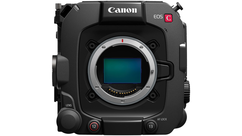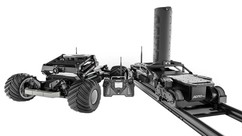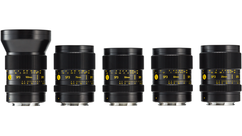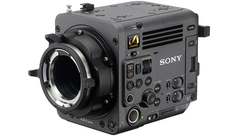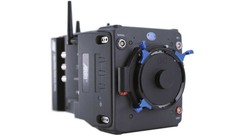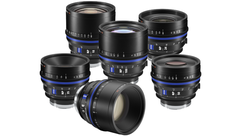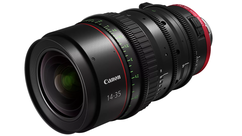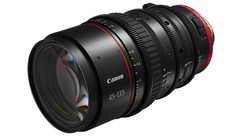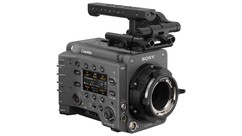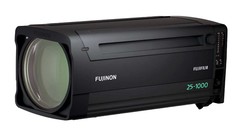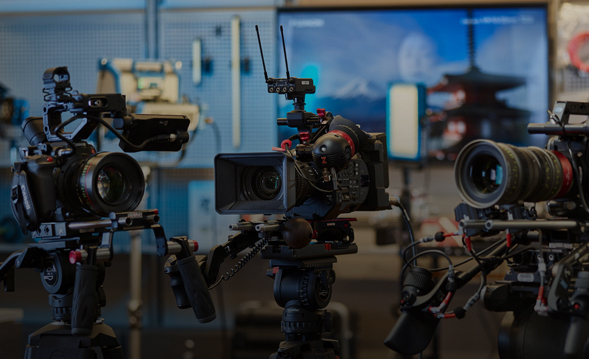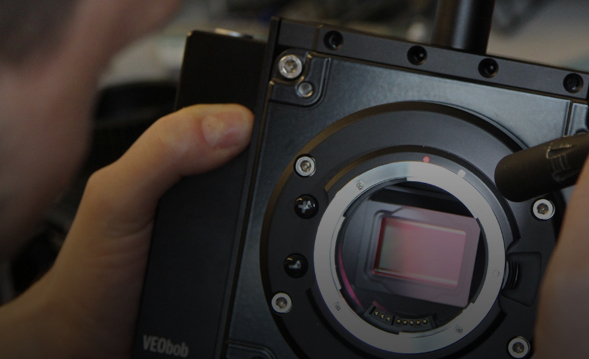Overview
The ARRI Full-Spectrum Neutral Density (FSND) Filters - 6x6 offer superior image control with maximum flexibility and no optical compromise. With the increased image quality of UHD and HDR filmmaking comes the need for superior optical quality. Low-cost filters introduce artifacts (e.g., flare, glare, reduced color saturation, and optical distortions), all of which compromise the integrity of high dynamic range and wide color gamut images.
Many manufacturers sandwich the filtration material between two pieces of glass, which can introduce astigmatism and other optical distortions. ARRI FSND filters are surface-coated, with highly-polished, high quality optical glass as a base. Subsequently, they are distortion free, even when used in conjunction with long focal length lenses.
Put simply, ARRI FSND filters leave image control to the cinematographer. They are perfectly color neutral, exceptionally resistant to flare and glare, protective of scene color, and introduce no discernible image distortions at even the longest focal lengths. Most importantly, they eliminate far red ("IR") contamination, without affecting skin tones.
NOTE: For example, a scene that is exposed with a T-stop of 5.6 can be exposed at 1.4 (+4 stops) when an ND 1.2 filter (-4 stops) is implemented. When using digital cameras, attenuation of near-infrared light becomes essential to avoid false color issues.
Features:
- Consistent, reliable, universal, and worry free
- Delivers significant competitive advantages for all shooting conditions
- Made of extremely high-quality Schott B270i glass, with completely flat and parallel surfaces that preserve high resolution scene detail
- Advanced, anti-reflective coatings preserve scene contrast and color saturation for HDR capture
- C-Shaped, blackened filter edges resist chipping and reflection
- Oil and water resistant surface coatings protect against adverse shooting conditions
- Easy to clean
- Hard-coated for long filter life
- Laser-engraved barcodes facilitate quick check-in and check-out for rental houses
Design
Optical coating design presents significant challenges, and onlyl a few manufacturers master the ultrathin metal film coating process to deliver high quality and consistently performing filters. The complete multilayer, thin-film coating on one clear glass substrate side is roughly one ten thousandth of the substrate's thickness, comprising several layers or complex mixtures of dielectrics, semiconductors and metals.
The absorbing layers embedded inside the coating stack have a thickness of only a few nanometers, and thickness must be precisely controlled within the range of 0.3nm (to give an idea of the scale we're talking about, grass grows about 20 to 40 nanometers per second in the summer months).
Anti-Reflective Coating
For ease of access and replacement, MPTV filters are housed in a mattebox. While convenient, this position is optically delicate and can result in flare-like ghost reflections being focused onto the imaging sensor. The severity of visibility of this stray light is proportional to spectral radiance, which usually increases with focal length. But it is also highly dependent on the optical design of the lens in use, and associated stray light paths.
Whether this stray light is problematic or artistically valuable is up to the content creator. To provide the Director of Photography with a choice, and avoid distraction from objective lens flare, ARRI FSND filters are equipped with low-reflective coatings on their smooth optical surfaces, and blackening of the edge surfaces.
Purpose
Neutral density filters are used more often than any other type of filter. Their effect should be limited to one attribute: reducing the amount of light reaching the sensor, with no other visible effect. Film is insensitive to red at the edge of the visible spectrum, and film NDs are transparent to this frequency range of light.
Digital sensors require a small amount of this "far red" light to render skin tone as healthy and vibrant, but traditional film NDs are not spectrally balanced for digital requirements (they cut most visible light, but pass too much far red; this causes color distortions that cannot be corrected in post).
Early attempts at creating digital filters resulted in overcompensation, rendering skin tones as dull and pasty. These filters worked on some cameras, but not all. ARRI FSND filters preserve color balance perfectly, eliminating color distortions and preserving lush skin tones. They are truly universal filters that produce the same high-quality result with every camera and lens combination.
What's in the Box
Please configure the product to find out what’s included in the boxResources
Please configure the product to find out what’s included in the boxSpecifications
Key Highlights
- Full-Spectrum ND Filters
- 6.6" x 6.6"

